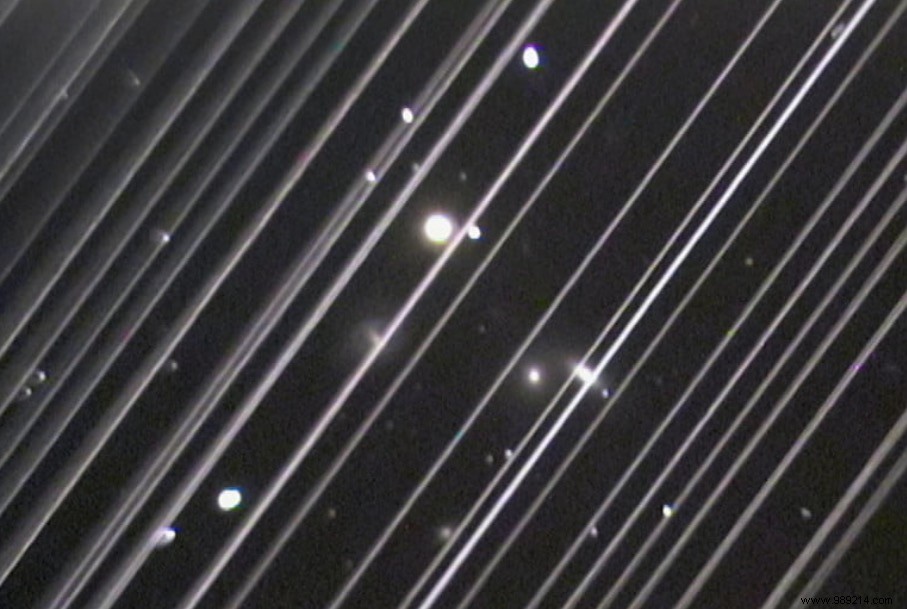Despite numerous complaints, SpaceX will be able to adjust the orbits of several thousand of these Starlink satellites. They will evolve lower than expected, in the vicinity of those soon deployed by Amazon.
The Federal Communications Commission has just granted SpaceX permission to operate 2,814 of its Starlink satellites in lower-than-expected orbits. The request had been criticized by several SpaceX competitors, including Amazon and OneWeb, which are also developing their own satellite internet networks.
The latter had indeed pointed out that this orbital adjustment would create harmful frequency interference and increase the risk of satellite collisions. These rivals have also claimed that proposed changes to SpaceX's original license, granted in 2018, would cause the FCC to treat the Starlink constellation as an entirely new structure subject to a more rigorous approval process.
The FCC, for its part, is obviously not of these opinions. This approval means that SpaceX can lower the altitude of its next 2814 satellites to approximately 550 km altitude , and not position them at 1150 km, as initially planned. Here, SpaceX will be able to more easily make the necessary adjustments to the security of its constellation. Concretely, the company will be able to eliminate its dead or defective satellites more quickly by directing them towards the Earth's atmosphere where they will be burned.
Note that bringing Starlink satellites closer to the Earth's surface is also good news for astronomers. At lower altitudes, the structures will indeed reflect less sunlight, which should limit discomfort.

At an altitude of around 550 km, the Starlink satellites, on the other hand, will evolve in the same orbital neighborhood as the constellation proposed by Amazon. SpaceX has therefore been asked to coordinate with its competitor to ensure that the signals from its satellites do not interfere with those of Amazon.
In other words, it's up to SpaceX to adapt. The 2814 Starlink satellites will therefore have to operate around the Amazon constellation, and not the other way around. On this last point, the company of Jeff Bezos, despite its reluctance to this orbital adjustment project, welcomed the FCC's decision.
Finally, SpaceX will also be required to provide semi-annual reports to the FCC on recorded outages, "conjunction events", or other "evasive maneuvers".
For its part, remember that Amazon, which plans to release 3236 satellites, has just announced that the first structures of its Kuiper constellation will be launched and delivered into orbit by a rocket United Launch Alliance Atlas V by 2026.